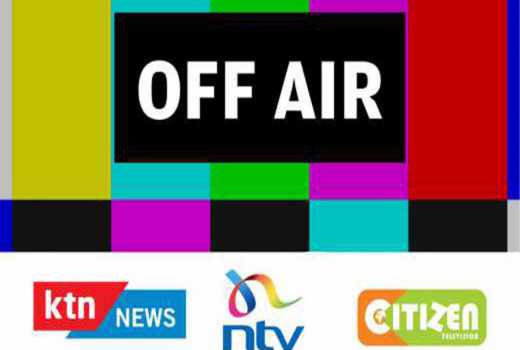×
The Standard e-Paper
Stay Informed, Even Offline

Kenyans have been thrown into an information blackout for an unspecified period as the State makes good its threat to clamp down on independent media outlets.
This follows a ministerial order given on Tuesday through the Communication Authority of Kenya to cut the link between television outlets and distributors – including government-owned Signet.